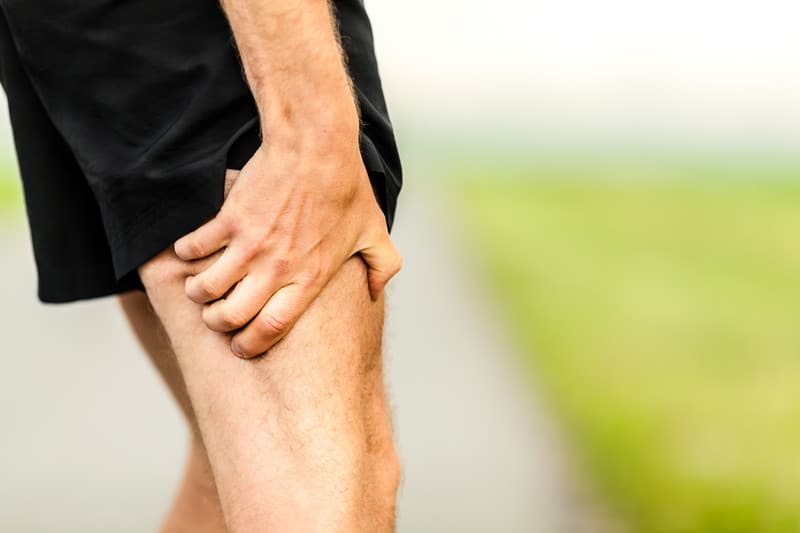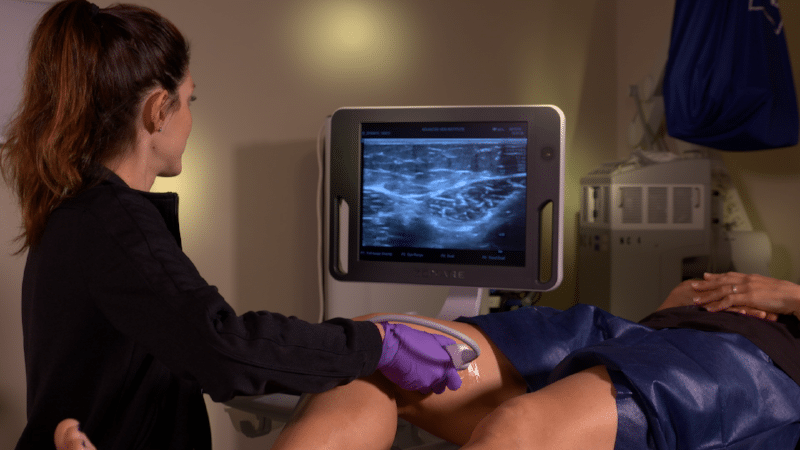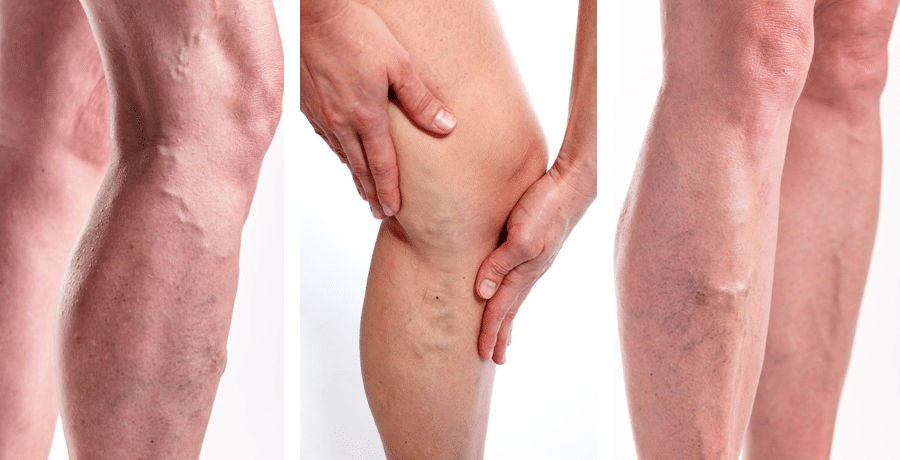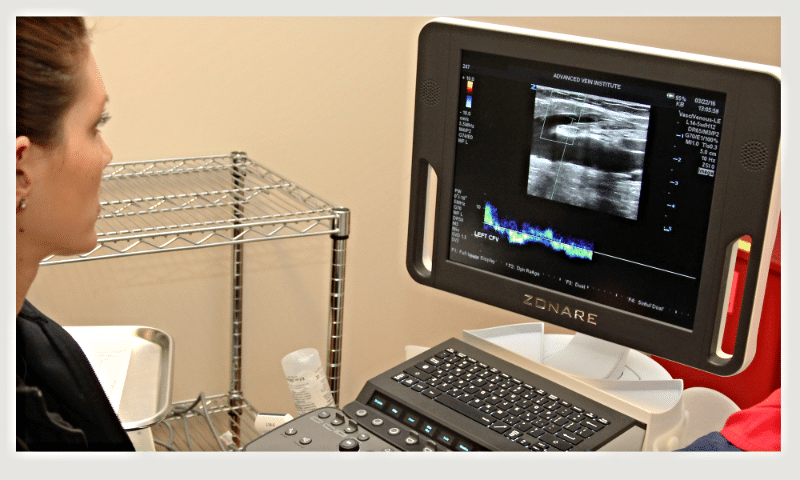
Home Remedies for Varicose Veins
Can You Cure Varicose Veins?
There are several conservative therapy and management of vein insufficiency options to help with the symptoms associated with varicose veins. None of these methods will prevent or fix the underlying problem. There is no cure for varicose veins or venous insufficiency, once a vein is abnormal (fails to return blood to the heart in a timely fashion) it will always be abnormal. Fortunately, a vein specialist can do a full vein exam and painless duplex ultrasound to find out which veins are insufficient and to recommend treatment options to alleviate health risks and varicose vein pain.
Varicose Veins Home Treatment
• Compression stockings will help minimize symptoms particularly for those who spend a lot of time standing. All patients diagnosed with vein insufficiency are required to wear at least 20-30mmHg compression stockings for a minimum of 90 days prior to insurances approving any type of intervention. Compression stockings are strongly recommended for patients with venous disease who travel, either on a flight or drive over 3 hours. This helps to minimize the risk of developing deep vein thrombosis (DVT), or a blood clot as a result of the underlying vein disease and lack of mobility.
• We know that when blood stops moving, it clots, so if you are sitting for a long time in one place, your risk of the blood pooling (venous reflux) and ceasing to flow increases significantly. This brings us to the second important conservative vein therapy – movement. Within your own parameters, be as active as possible, all day long. Take breaks from your desk job, go for a brief walk, or do leg exercises at your desk. This improves circulation, thereby minimizing the symptoms associated with vein problems. Elevating your legs whenever possible will help to decrease swelling in legs, leg fatigue, itching legs, etc.
• Finally, as with all other chronic health conditions, a sensible diet helps in a myriad of ways. Most importantly, stay well hydrated. Heat will affect varicose veins, especially in the summer in Arizona. Consuming at least 64 ounces of water a day, better yet a gallon of water a day, prevents dehydration and improves blood flow. In patients who are dehydrated, blood flow becomes sluggish, and we know slow blood flow increases the risk of clots.
Oftentimes, these simple and conservative vein therapies will be helpful. For people with continuing and more aggressive symptoms, a visit to a vein specialist for a full exam and duplex ultrasound is the best solution for finding relief from varicose vein pain and vein treatments to reduce overall health risk!
DVT and Varicose Veins during Pregnancy Pregnancy is a risk factor for the development of a blood clots with an incidence that is 4 to 50 times higher compared to non-pregnant women. Increased risk for development of a blood clot is highest in the postpartum period, with the most common occurrence of clot formation in…
Read MoreDeep Vein Thrombosis and Travel Ready to enjoy some summer time travel? Make sure your trip is not shortened by a serious health concern. Small, cramped seating on an airplane, or sitting in a car for a prolonged period of time, may be more of a problem that just causing discomfort. Inactivity in a confined…
Read MoreIn the second of this educational video series, Jilanne Rose talks about the pain involved in various Varicose Vein Treatments. In some cases it’s negligible! Transcript The ease with which we can eliminate varicose veins depends solely on what type of underlying problems you have. That question can’t be easily answered until after a thorough…
Read MoreWhat is Restless Leg Syndrome Restless leg syndrome (RLS), also called Willis-Ekbom disease (WED), is a common sleep-related movement disorder characterized by an unpleasant urge to move the legs. Symptoms often occur during periods of inactivity; particularly in the evenings. This urge to move is sometimes relieved by moving ones legs. During sleep, most patients’…
Read MoreOur own Dr. Jilanne Rose answers questions on Varicose Veins, Spider Veins, Vein Treatments and Insurance Coverage for Vein Treatment in Arizona. Jilanne is a true Varicose Vein Specialist as she has years of education and has been trained by the top experts in the field. She has performed over 10,000 vein care procedures herself. This is one…
Read MoreRisks of Deep Vein Thrombosis Deep Vein Thrombosis (DVT), also referred to as Deep Venous Thrombosis, is a blood clot located within a deep vein, usually in the leg. A blood clot that breaks free and travels up to the heart or lungs is referred to as a Pulmonary Embolism (PE), which can stop blood…
Read MoreWhat Causes Spider Veins? For many people who suffer from spider veins, one of their biggest questions is “What causes spider veins?” Spider Veins, also known as telangiectasia, are small veins located just under the surface of the skin. Most often found on the leg, they can either be very small and hardly noticeable, or…
Read MoreAre varicose veins covered by insurance? The answer is YES, varicose vein treatment is covered by most commercial insurance carriers such as Blue Cross Blue Shield, Champus, Aetna, Cigna, Humana, Health Net, Tricare, UMR, and UnitedHealthCare to name a few. Medicare and AHCCCS will also cover treatment. Many people only try home treatment for varicose veins…
Read MoreAre all vein clinics created equal? No they are not! Med Spa – You can turn on the television or radio at any time of the day and hear countless advertisements for “quick” or “painless” vein treatments. Go to this clinic or that medspa, and they assure you that your legs will look great in no…
Read MoreAside from conservative therapies for vein insufficiency, when your symptoms get to the point that these no longer work, or you want a more permanent solution, there are several methods to treat vein disease. All of them, regardless of method, aim to improve circulation and minimize symptoms by eliminating the abnormal vein. These methods include…
Read More




